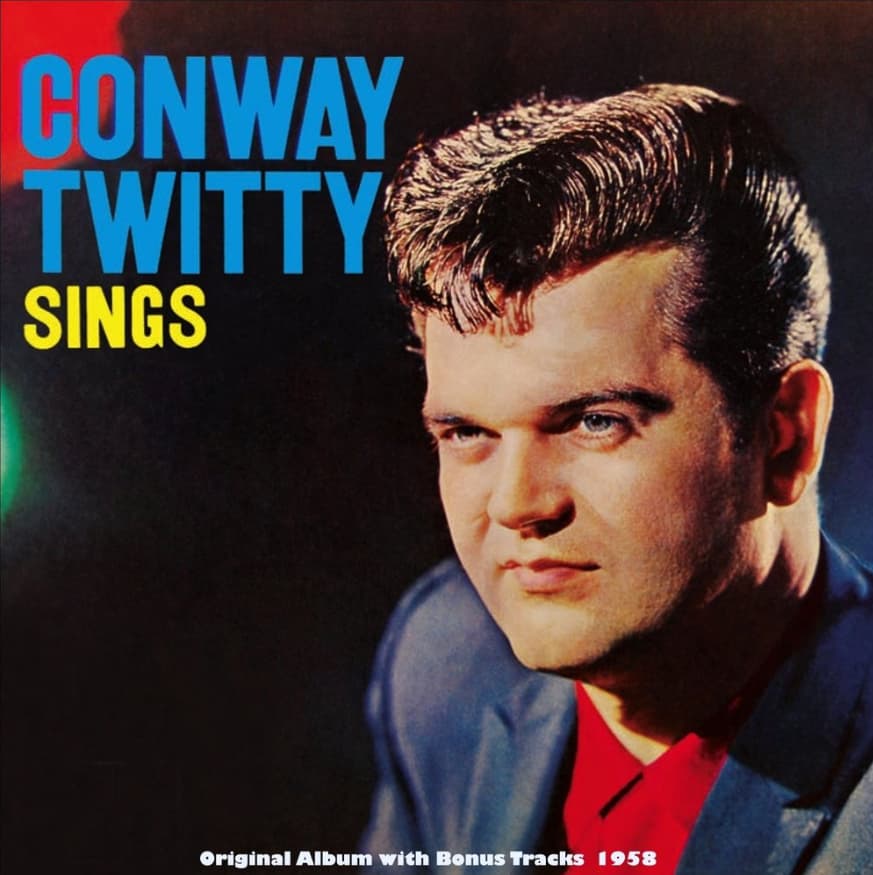
The Beautiful Agony of Unrequited Love, Made Real
There are songs that simply take you back, songs with an opening note that’s like turning the key in a forgotten old lock, and immediately, a flood of memories rushes in. “It’s Only Make Believe,” by the late, great Conway Twitty, is one of those timeless pieces—a mournful, magnificent rock and roll ballad from the era when popular music was truly finding its voice. It’s a song about the deep, private ache of unrequited love, where a desperate longing for someone who doesn’t return your feelings is all you have, forcing you to live in a beautiful but fragile fantasy of what could be.
This wasn’t just a hit; it was a phenomenon, the song that first launched a future country music titan onto the national and international stage. Originally released on July 14, 1958, as the B-side to Conway Twitty’s single “I’ll Try” on MGM Records, it took a discerning Ohio DJ to flip the record and realize the magic hidden on the reverse. The rest, as they say, is history. “It’s Only Make Believe” rocketed up the charts, becoming Twitty’s first and only No. 1 single on the U.S. Billboard chart in November 1958, where it held the top spot for two weeks. It also soared to No. 1 on the UK Singles Chart, even claiming the prestigious title of UK Christmas Number 1 for 1958. This success was an absolute game-changer for the young singer, who at the time was still an unknown rock ‘n’ roll hopeful named Harold Lloyd Jenkins. The song sold an incredible eight million copies worldwide, proving its universal resonance.
The story behind its creation is one of those wonderful, spur-of-the-moment bursts of inspiration. Conway Twitty—who had chosen his memorable stage name by looking at a map and combining Conway, Arkansas, and Twitty, Texas—was on the road, touring in Canada in 1958. He and his drummer, Jack Nance, co-wrote the song during a break in a show at the Flamingo Lounge in Hamilton, Ontario. Nance did most of the writing, with Twitty providing the finishing touches. The recording itself, cut at Bradley Studios in Nashville, is famous for the distinctive, throaty growl in Twitty’s voice, a sonic trademark suggested by producer Jim Vienneau, and backed by the impeccable harmonies of the Jordanaires. That raw, passionate vocal delivery is what truly elevates the song, giving voice to the protagonist’s tormented inner life.
Listening to it, you can hear the vulnerability of a heart exposed. The lyrics paint the picture of a man utterly consumed by his passion: “My hopes, my dreams come true, my life I’d give for you / My heart, a wedding ring, my all, my everything.” But the devastating, melancholic reality hits with the title phrase: “But it’s only make believe.” It captures that common human experience of performing happiness—of people seeing the two of you together and assuming a true, mutual love—while internally, the singer knows the truth: “Myself, I can’t deceive… I know it’s only make believe.” It is a stunning depiction of yearning, of building a beautiful world for two, only to have to tear it down with the simple, painful truth that you are loved by no one but your own shadow. It’s a rock and roll heartache wrapped in a swoon-worthy melody, a true classic that still echoes the sweet sorrow of love’s impossible dream.